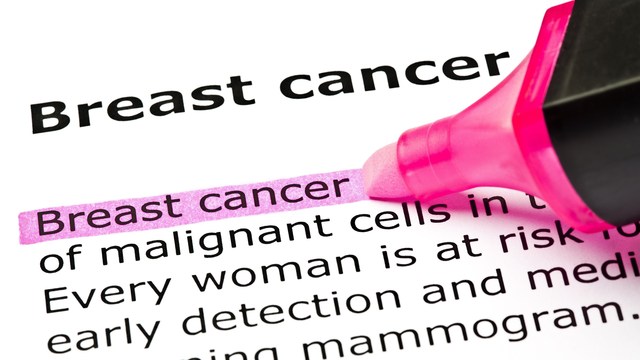 Ivelin Radkov/PhotoSpin
Ivelin Radkov/PhotoSpin
Most women would agree that getting a mammogram isn’t much fun. In fact, discomfort is one of the most cited excuses women give for not getting regularly screened for breast cancer, the second most common form of cancer in women.
So when some companies started promoting an easier, more comfortable alternative to mammography some women jumped with glee.
The stand-alone diagnostic test, called a nipple aspirate, has been touted as “literally a PAP test for breast cancer,” for women age 18 and older, according to one company’s literature. The claim was that nipple aspirate tests could detect breast cancer in its earliest and most treatable stages.
The only problem is that the claims are clinically unsubstantiated and could put women at grave risk, according the U.S. Food and Drug Administration (FDA).
The FDA is alerting the public that a nipple aspirate test should not replace mammography, other breast imaging tests, or breast biopsy, nor should the nipple test be used alone to screen for or diagnose breast cancer.
"Our fear is that women will forgo a mammogram and have this test instead. This could result in serious health consequences if breast cancer goes undetected,” said David L. Lerner, M.D., a medical officer at the FDA and a specialist in breast imaging.
A nipple aspirate test uses a breast pump to collect fluid from a woman’s nipples to screen for abnormal and potentially cancerous cells.
In a safety alert, the FDA recommends that women who’ve received a nipple aspirate test as a form of breast cancer screening should also have a mammogram according to screening guidelines or as recommended by their doctor, and should talk to their health care professional about whether additional tests are needed.
“FDA is unaware of any valid scientific data to show that nipple aspirate tests, when used on their own, are an effective screening tool for any medical condition, including the detection of breast cancer or other breast disease,” Lerner said in the written warning.
“Researchers are still studying whether these tests may one day be used, in conjunction with other medical devices, to screen for disease.”
Companies supplying nipple aspirate tests acknowledge that more than 90 percent of their fluid samples may contain either very scant cells or no cells at all. Yet the companies called such results "diagnostically useful" and even conclude that a patient is healthy based on a cell-free sample, Lerner said.
"The test may be missing cancers and giving women dangerous false assurance," he said.
In February, 2013 the FDA issued a warning letter to Atossa Genetics, Inc. the maker of the ForeCYTE Breast Health Test and the Mammary Aspiration Specimen Cytology Test, that, among other things, their ForeCYTE test was “misbranded” in that its labeling was false or misleading.
The FDA asked the Seattle firm to take prompt action to correct the violations.
Atossa initiated a voluntary recall in October 2013 to remove its ForeCYTE Breast Health Test from the market. The FDA classified this recall as Class I, identifying the product as “being dangerous or defective and has a reasonable chance of causing serious health problems or death.”
Nipple aspirate tests also caught the attention of The National Comprehensive Cancer Network, a nonprofit alliance of leading cancer centers, whose 2013 guidelines state that the clinical utility of nipple aspiration is still being evaluated and it should not be used as a breast cancer screening technique.
Similar tests may still be available to consumers. The FDA will continue to monitor the promotional activity of nipple aspirate test manufacturers, and keep the public and practitioners informed as new information becomes available, the agency’s warning letter stated.
The National Cancer Institute, the FDA, and other professional health organizations agree a screening mammography is “still the most effective method for screening for breast cancer” and can help reduce the number of deaths from breast cancer among women ages 40-70.
Regular mammograms are credited with much of the decline in breast-cancer death rates in recent years because mammograms identify a tumor before it can be felt during a breast self-exam or by a clinical manual exam.
Lynette Summerill is an award-winning writer and watersport junkie who lives in San Diego with her husband and two beach loving dogs. In addition to writing about cancer-related issues for EmpowHER, her work has been seen in publications internationally.
Sources:
FDA Safety Alert. Nipple Aspirate Testis not an Alternative To Mammography. 12 Dec. 2013.
http://www.fda.gov/Safety/MedWatch/SafetyInformation/SafetyAlertsforHumanMedicalProducts/ucm378489.htm
http://www.fda.gov/ForConsumers/ConsumerUpdates/ucm378257.htm
FDA Medical Device Recall: Atossa Genetics Mammary Aspiration Specimen Cytology Tests (MASCT) System kit and the ForeCyte Breast Health Test. Marketing with Approval or Clearance. 19 September 2013.
http://www.fda.gov/MedicalDevices/Safety/ListofRecalls/ucm374600.htm
Medical Device Voluntary Recall. Atrossa Genetics News Release. 4 October 2013.
http://content.stockpr.com/_news/atossagenetics/2013-10-04_Medical_Device_Voluntary_Recall_News_Release_204.pdf
NCCN Guidelines 2.2013, Breast Cancer Screening and Diagnosis
http://www.nccn.org
Reviewed January 14, 2013
by Michele Blacksberg RN
Edited by Jody Smith






Add a CommentComments
There are no comments yet. Be the first one and get the conversation started!